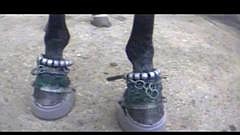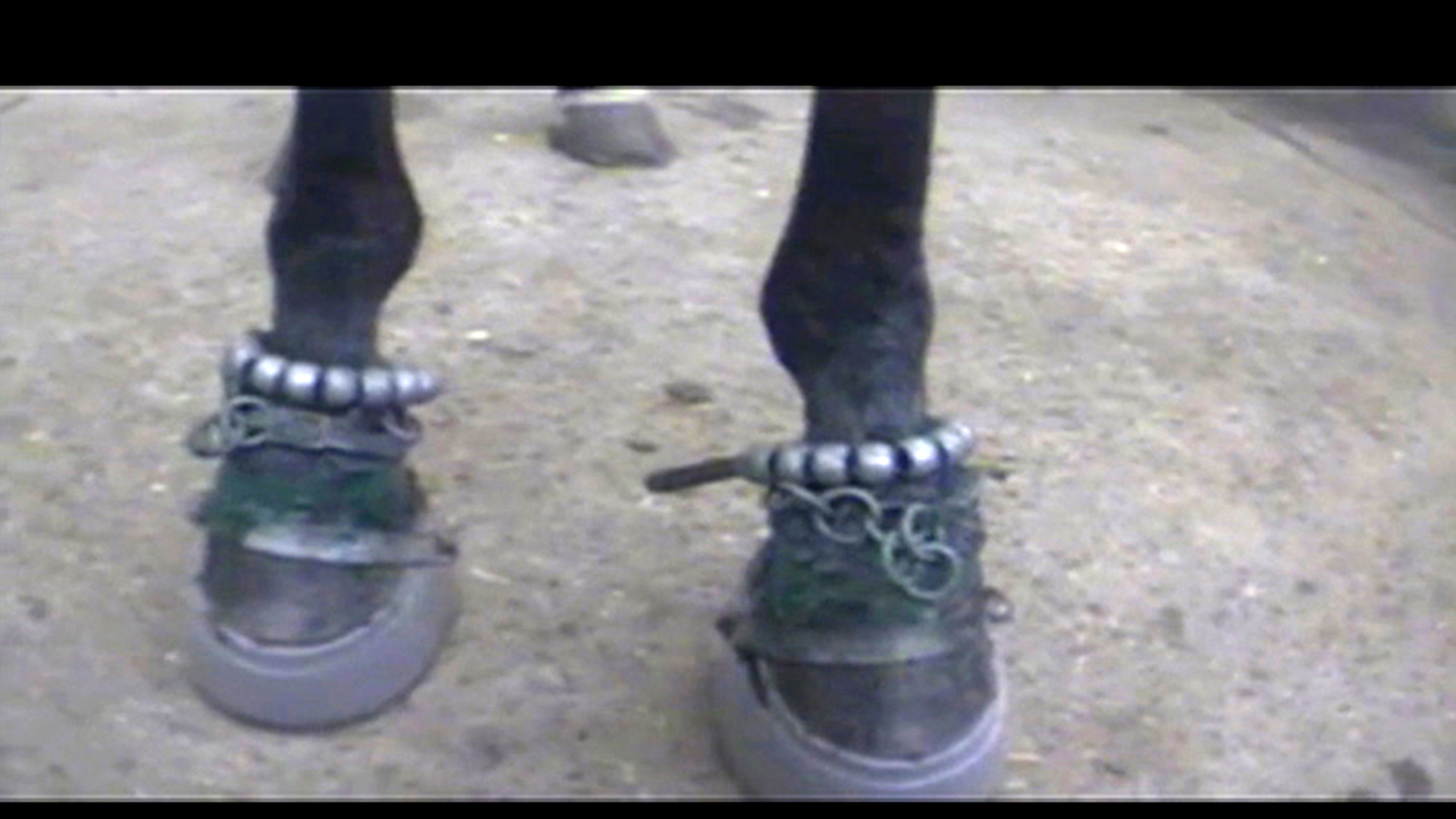A Tennessee walking horse inspection group has filed a federal lawsuit challenging the USDA's recent regulatory action requiring the industry to impose mandatory penalties for abusing the horses.
The suit claims the rules -- intended to curb an abusive training practice known as soring -- are unconstitutional, according to a statement released Monday by SHOW, the horse industry organization that inspects animals entered in the Tennessee Walking Horse National Celebration.
"Reformers within the walking show horse industry are committed to self-regulation as demonstrated by recent efforts but the USDA's regulations are not only unconstitutional, they unfairly punish those most aggressively working to clean up the industry," Dr. Stephen L. Mullins, a veterinarian who heads SHOW, said in a prepared statement.
USDA officials could not be reached Monday to comment on SHOW's lawsuit.
Earlier this month, the U.S. Department of Agriculture announced mandatory minimum penalties for Tennessee walking horse abuse, including soring, the use of caustic chemicals and devices -- sometimes chains to irritate skin treated with chemicals and sometimes even nails driven into the hooves -- that makes Tennessee walking horses achieve their famous high-stepping gait with less training time.
Dr. Chester Gipson, deputy administrator of USDA's animal care division, said the organization noticed that industry inspectors issued anywhere from double to 80 percent more violation "tickets" when USDA inspectors were also present at a horse show. But the thinly stretched USDA inspectors can only attend about 7 percent of the shows.
Gipson said the new rules were adopted to combat the discrepancy and "level the playing field."
"Inspectors cannot be present at every show," he said. "We know those shows that attract more competition are those where the HIOs [horse industry organizations] don't enforce so much," Gipson said as he announced the new rules.
USDA records for 2008 violations found that the group inspecting the Tennessee Walking Horse National Celebration had written 477 violations at 252 shows that year. But more than half -- 280 violations -- were written at the 16 shows that USDA inspectors also attended.
Soring has been illegal for 40 years under the Horse Protection Act, but some in the horse industry say it is rampant.
In recent months, at least three Tennessee men have faced federal criminal charges pertaining to soring, and they have pleaded guilty. U.S. District Attorney Bill Killian said those federal cases are the first-ever criminal cases prosecuted against walking horse trainers and managers.
According to SHOW's Monday statement about the lawsuit, the new rule adopted by USDA would force private organizations to impose mandatory federal suspensions on show participants "while denying the accused any possibility of an appeal to either the agency or a United States Court of Appeals."
Ironically, SHOW on Saturday announced that it had taken an action in a Liberty Lions Club horse show on June 15 in Shelbyville, Tenn., and ticketed trainer Joe Cotten. In the statement, SHOW said Cotten has been suspended for 71/2 years and fined $5,000.
"This is one of the longest suspensions ever issued to a Tennessee walking horse trainer, even longer than what is required by the federal government," Mullins said Saturday.
Keith Dane, a veterinarian who serves as the director of equine protection for the Humane Society of the United States, lauded the new USDA rule as a first step, though the society has likened having industry inspectors as "the fox guarding the henhouse."
On Monday, Dane said he hadn't seen the lawsuit, "but SHOW's decision to file a lawsuit trying to block USDA's efforts at reform says everything about whether this industry has the will or ability to clean up its act on its own," he said.
Contact staff writer Pam Sohn at 423-757-6346 or psohn@timesfreepress.com.

